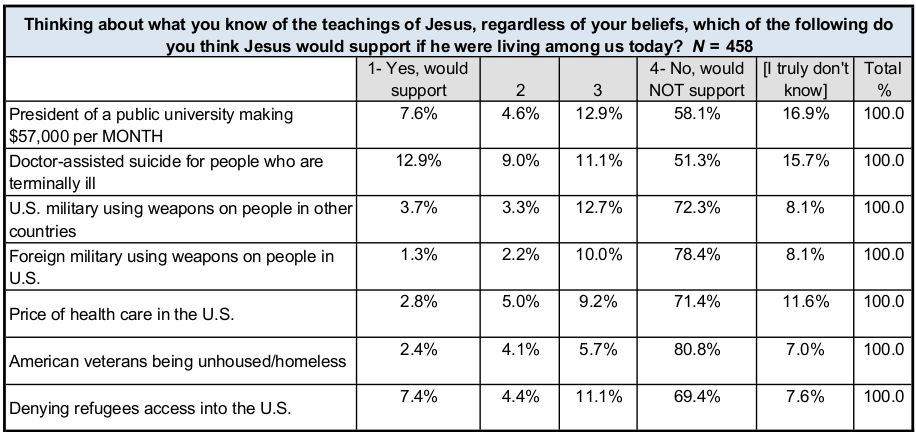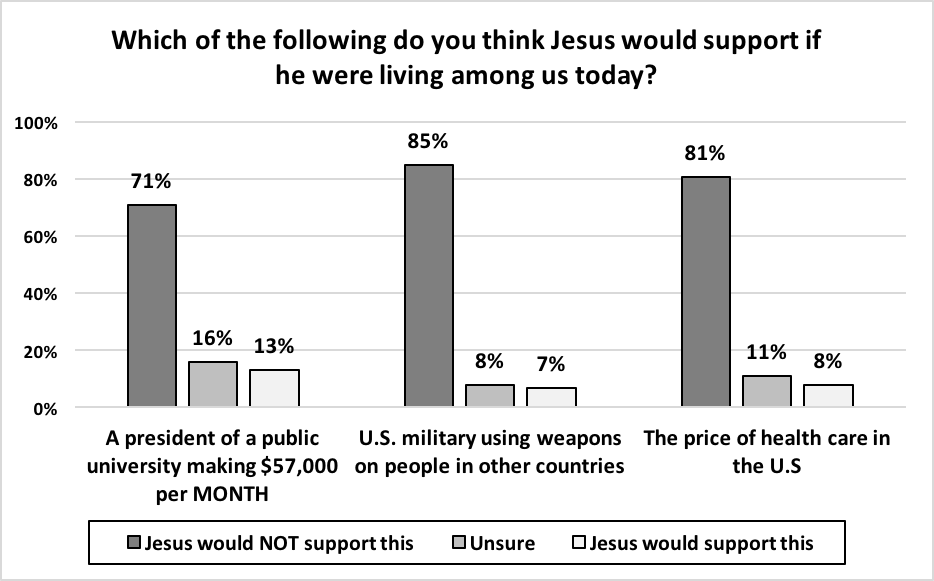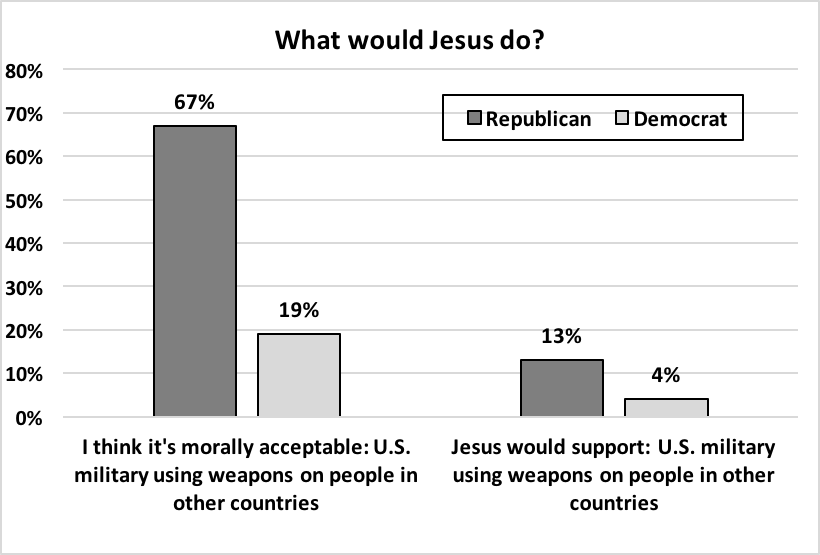What would Jesus do, and should we care?
October, 2o17
Regardless of personal beliefs or level of religiosity, most people would likely agree that Jesus Christ represents positive moral standards. The question is, should we strive to live our lives in a way that attempts to model those moral standards? Humans are masters at justifying behaviors that we can feel fairly certain that Jesus would not support. Would Jesus support war or express hate for a group of people who are supposed to be all created by one god? Would Jesus support high consumption, like buying unneeded purchases, regular driving, and using air travel, with the knowledge of the resulting social and environmental damage?
Our largely Christian culture sometimes uses the question “What would Jesus do?” as a shortcut to gauge moral dilemmas. We decided to use this approach in a recent August survey of 458 U.S. adults with seven questions of current cultural interest. We asked, “Which of the following do you think Jesus would support if he were living among us today?”


“A president of a public university making $57,000 per MONTH” (based on current UO President’s salary): 71 percent of respondents felt Jesus would not support this, 16 percent were undecided, and 13 percent thought he would support this salary.
“U.S. military using weapons on people in other countries”: 85 percent reported they do not think Jesus would support this, 8 percent were undecided, and 7 percent thought he would support this.
“The price of health care in the U.S.”: 81 percent think Jesus would not support this, 11 percent were undecided, and 8 percent thought he would support this.

We asked the same people whether they personally found the same questions morally acceptable. Thus, we can compare their personal views against how they rated Jesus’ view point. Curiously, we found that Republicans who took the survey, who self-identify as Christian at higher rates than liberal-progressives, deviated considerably in their own moral views from what they thought Jesus’ views would be.
For example, on the morality of the “U.S. military using weapons on people in other countries?” 67 percent of Republicans see this as morally acceptable, but only 13 percent felt that Jesus would think it acceptable. Nineteen percent of Democrats personally felt it morally acceptable, while 4 percent felt Jesus would see it as morally acceptable.
Methodology & Transparency
Surveys were collected via opt-in online survey among a nonprobability sample of Americans from the general public (458 participants: 438 from Mechanical Turk (MTurk) and 20 from Facebook and Reddit online communities).
This study was sponsored, conducted, and funded by PolicyInteractive. MTurk respondents were paid a token of $.34 each. The reported data is not weighted. These surveys were administered during the month of August in 2017, and only in English. Demographic details, complete surveys and full results at links below.
*MTurk workers tend to be younger, more formally educated, more White, and more liberal than the general public, which is of course important to keep in mind while reading over the results.
Full results here: https://www.policyinteractive.org/public/MoralValuesFrequencies.pdf